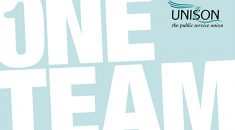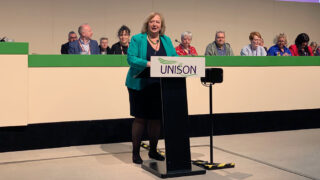Government plans to scrap the bursary funding for students on nursing, midwifery and other health degrees will mean around 2,000 fewer people a year will study for a career in the NHS, according to a new independent economic analysis released today (Wednesday) by UNISON and NUS.
This plummet in the number of NHS students will mean even fewer qualified new recruits for the NHS from 2020, causing trusts to spend more on agency staff or overseas recruitment to make up the inevitable shortfall in numbers, says the report.
The publication of the study – commissioned by UNISON and NUS from London Economics – coincides with a Save NHS Nursing Bursary lobby in Westminster later today.
The report says the changes – due to be introduced in September 2017 – will mean huge debts for students who do graduate, and a potential decrease in the number of health courses offered by universities.
When the government announced in November that the bursary was to be replaced with a system of student loans, ministers claimed the changes would mean huge savings for the Exchequer, extra training places and an increase in funding for universities.
London Economics’ analysis has looked in detail at the changes being proposed to the funding of health degrees and found that:
After 2017 students on nursing or other health degrees will graduate with debts of just under £49,000. Students currently end their three-year courses owing just under £7,000.
Rather than creating 10,000 new places as ministers claim, an estimated 71 per cent increase in student costs are likely to lead to a 6-7 per cent reduction in demand per yearly intake – equal to a drop of around 2,000 graduates each year.
Universities will be worse off to the tune of between £57m and £77m per student intake with fewer students applying for courses. This loss of income will result both from declining student numbers and universities earmarking cash from tuition fees for programmes agreed with the Office of Fair Access. The loss of income may mean some universities simply stop running courses.
As nursing and other health students tend to be older and earn less on graduation than other students, the amount they will be able to pay back is likely to be less than other graduates. The apparent Exchequer saving of £534m per student intake, masks the likelihood that few students will earn enough during their working lives to pay off their entire debt, which will reduce the savings to around £88m a year.
With fewer students graduating to work in the NHS, any savings made by axing the bursary will be more than wiped out by an increase in spending on agency staff and overseas recruitment costs, to the tune of £100.3m per student intake.
UNISON head of health Christina McAnea said: “The government claims there are huge savings to be made from scrapping the bursary, but this analysis suggests the reverse is true.
“The prospect of graduating with huge debts is understandably going to put many people off a career in the NHS – especially when they realise they may never earn enough during their working lives to pay off the loan entirely.
“The NHS already has too few nurses, scrapping the bursary will make an already difficult situation much worse. With too few staff on the wards, the impact on patient safety could well be disastrous.
“Fewer students coming out of university will mean trusts have no option but to go even further into the red as they have to up their spending on agency staff and overseas recruitment. But it’s not too late for ministers to admit they were wrong, and start looking at other ways of encouraging people to consider careers in health. The government needs to rethink these ill-conceived plans.”
NUS national president Megan Dunn said: “The government is gambling with the future of the NHS and repeatedly ignoring the voices of those who will be hit hardest by these changes. We will be at parliament today to demand the government reconsiders this damaging proposal.
“This research proves the costs will massively outweigh any benefits of these plans. It shows the government’s main reason for scrapping the bursaries, to save money, is blatantly incorrect.
“Driving students further into such enormous debt will have a damaging impact on individual students, the wider intake and the universities that run these courses. Ultimately this proposal will limit access, rather than widen it.”
Notes to editors:
– The report from London Economics is available here UNISON NUS Report Nurse fees and funding
– The Save NHS bursary lobby takes place in Westminster from 10am-3pm today. It will be followed by a rally in Central Hall from 3-4.30pm. Speakers include UNISON head of health Christina McAnea, shadow health spokesperson Heidi Alexander MP, SNP spokesperson for health Philippa Whitford MP, NUS President Megan Dunn, Unite national officer for health Colenzo Jarrett-Thorpe and head of education and learning at the Royal College of Midwives, Carmel Lloyd.
– The lobby takes place during the government’s consultation on NHS bursaries that closes at the end of June.
– The national lobby is being organised by the British Dental Association, the Royal College of Midwives, the Royal College of Nursing, the National Union of Students, UNISON and Unite.
– From September 2017, students on nursing, midwifery and other allied health degrees will be moved onto the standard student support system. All non-repayable bursaries and other allowances will be replaced with repayable student loans. University places will no longer be funded via Health Education England but by fee-based tuition fees.
– The Office for Fair Access is the independent regulator of fair access to higher education in England.
Media contacts:
Liz Chinchen T: 0207 121 5463 M: 07778 158175 E: l.chinchen@unison.co.uk
Katasha McCullough NUS M: 07866 695010 E: katasha.mccullough@nus.org.uk







